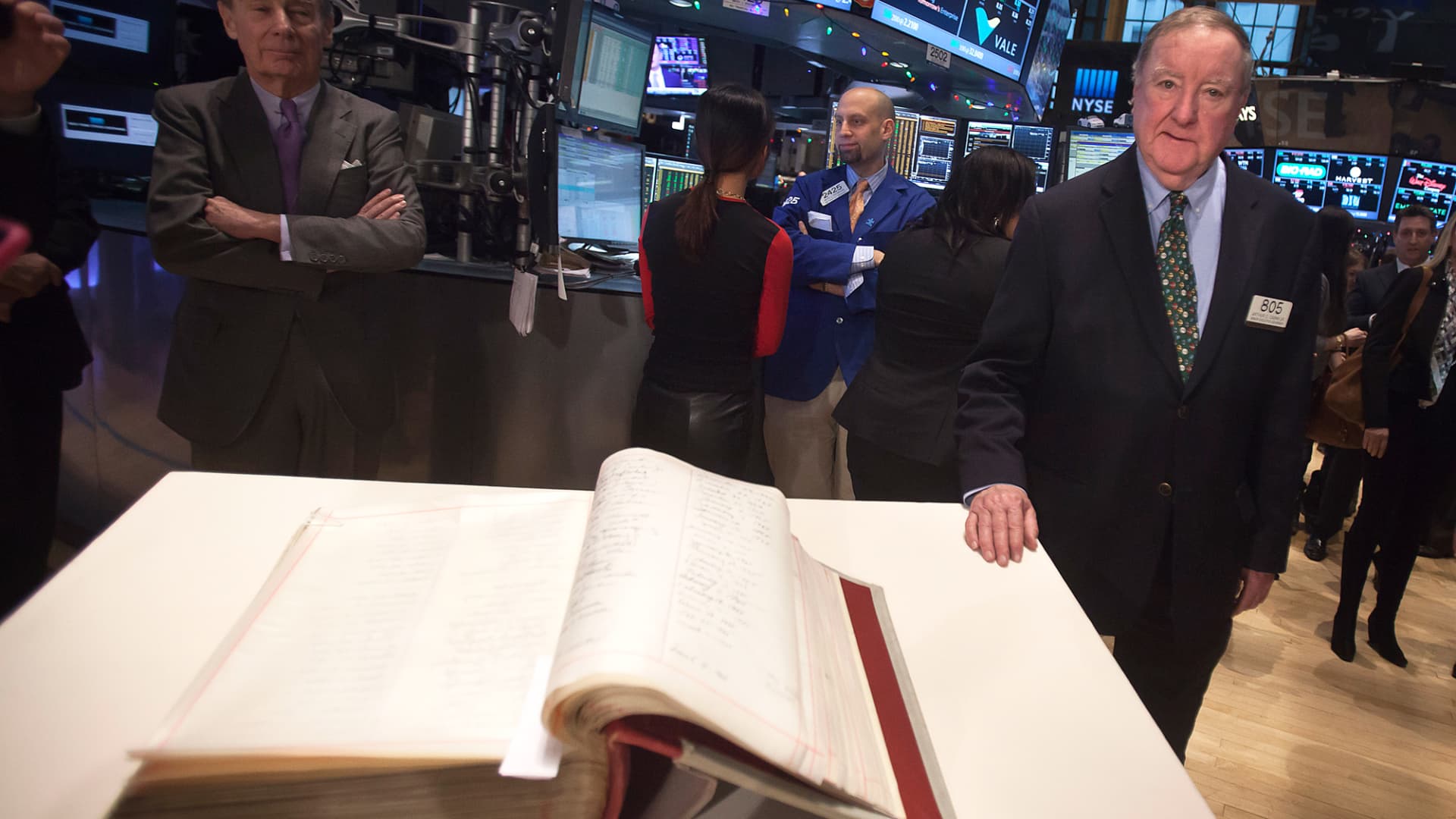For decades, Art Cashin, UBS’ director of floor operations at the New York Stock Exchange, would write a New Year’s poem to reflect back on the year’s events. With Cashin’s passing earlier this month, his sons, Arthur and Peter, sent this homage to their father.
Some Other Cashins’ Comments: An Homage Presentation
December 30, 2024
by Arthur Cashin III and Peter Cashin
In 2024,
Wall Street stopped in fear.
No more annual poems
without Arthur here?
My brother and I
said, “Let’s give this a try,”
but with one precondition,
there would be no AI!
Genetics or environment,
we share his same vice.
So, we joined our feeble minds,
while marinating some ice.
Paris hosted the Olympics
and chose to begin,
by having the opening
float down the Seine.
A container ship took out
the Francis Scott Key.
The world wondered if Putin
did same to Navalny.
The ruler of Syria,
al-Assad is now gone,
but in Ukraine and Gaza,
the wars still carry on.
‘Round most of the world,
incumbents lost reelection.
Here in the U.S.,
45’s now 47.
Wall Street continued
its historic bull run.
And with the help of Wegovy,
the world lost a ton.
Taylor Swift can go home.
Eras came to an end.
But only on the field
did Travis’ knee bend.
Boeing’s labor strife
paused the 737.
They also left two astronauts
between here and heaven.
Some finance greats are
no longer among us.
We lost Jim Simons and
HD’s Bernie Marcus.
We lost the deep bass
Hollywood counted upon.
The voice of Mufasa
and Vader is gone.
The choir of angels
got a whole lot better
now that Cissy and Whitney
are singing together.
Arlo Guthrie’s old muse,
she has a new haunt.
Alice Brock is in heaven,
at a new restaurant.
Toby Keith and Kristofferson
climbed that heavenly stair.
Now jammin’ with Buffett,
must be 5 o’clock there.
Phil Donahue is up there,
booking new guests.
Wonder if Dr. Ruth
will be on his stage next.
A remake of “Tootsie”
seems not to be far.
Dabney Coleman was joined
by the great Teri Garr.
Whitey Herzog submitted
his final all-star roster.
With Rose, Mays and Cepeda;
not a single impostor.
Lou Carnesecca now coaches
a team that’s the best,
with players like Mutombo
and Walton and West.
Zagallo and Beckenbauer,
both Of World Cup fame,
will rejoin greats like Pele
for a quick pick-up game.
Remember that sound bite
you’d hear without fail?
We no longer have the voice
who said: “You’ve got mail!”
A poet laureate left us,
as they eventually would.
We can’t overlook
the great Charles Osgood.
And we would be remiss
not to share why we’re sad.
This exercise brought memories
of our dear old dad.
To others, he was Arthur,
Mr. Cashin or Chief.
But he was our father
and we share now our grief.
You knew him as
he wanted to be:
Historian, philanthropist,
soul of the NYSE.
If he joined you for drink,
you should have been flattered
and talk markets or politics,
or things that truly mattered.
From comments to speeches,
writing was his art.
But was he as funny
as the late Bob Newhart?
An Xavier alum,
a true Jesuit scholar.
Of his alma mater,
there was no one prouder.
Were it not for Ray Charles
or voters in Jersey,
you never would have seen him
on CNBC.
So as this year ends
and you look to ’25,
we offer two tips
to help you survive.
Cherish those still here.
Remember those you miss.
From the Cashins to yours,
all the best is our wish.
Begorrah, menorah,
Lanza and Kwanzaa,
May your New Year be filled
with true abbondanza!
And as the ice melted
in each of our glasses,
we knew if Dad read this
he’d kick both our asses.
Rest in peace, Dad.
Art Cashin also traditionally led the annual singing of “Wait ’till the Sun Shines, Nellie” with current and former NYSE members on New Year’s Eve. On Tuesday, the sons will lead the singing at 1:45 p.m. ET and ring the bell to close out the year.

 Blog Post6 days ago
Blog Post6 days ago
 Accounting1 week ago
Accounting1 week ago
 Economics1 week ago
Economics1 week ago
 Personal Finance1 week ago
Personal Finance1 week ago
 Economics1 week ago
Economics1 week ago
 Personal Finance1 week ago
Personal Finance1 week ago
 Accounting1 week ago
Accounting1 week ago
 Finance1 week ago
Finance1 week ago









